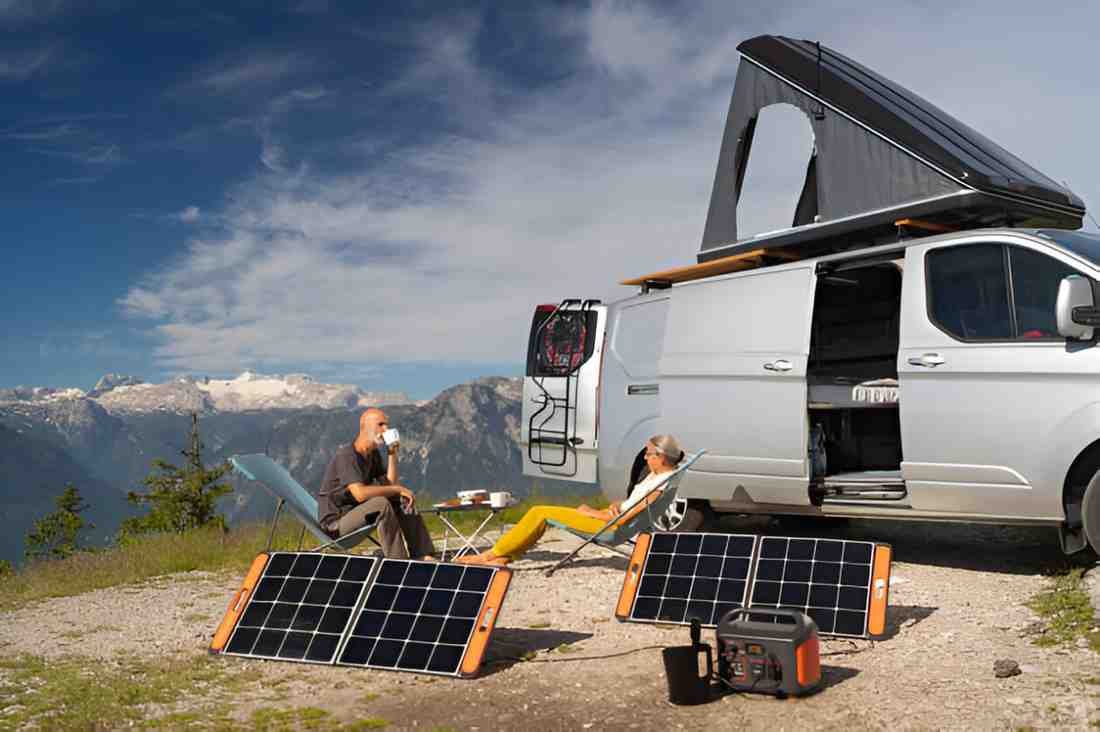When it comes to outdoor adventures like camping, having access to reliable power can be a game changer. I’ve spent a fair amount of time outdoors, and I’ve come to realize how essential it is to have a portable solar power station with me. Whether it’s charging a phone, powering a small fridge, or keeping my lanterns and lights on, a portable solar power station can make the experience more enjoyable and hassle-free. But with so many options available, choosing the right one can feel overwhelming. In this article, I’ll guide you through the process of selecting the best portable solar power station for camping.
Table of Contents
Why Choose a Portable Solar Power Station for Camping?
Before diving into the specifics of each model, I want to talk about why I think a portable solar power station is a worthwhile investment for camping trips. Many of us head into the wild to disconnect from the everyday hustle and bustle, but there’s a difference between disconnecting and being completely off the grid. A solar power station helps bridge that gap.
Here’s why you might want one:
- Sustainability: Solar power is an eco-friendly option, using energy from the sun. This means no more worrying about fuel, batteries, or pollution.
- Convenience: A portable solar station can power your devices and camping gear without needing a traditional power source, making it an ideal companion for remote locations.
- Versatility: Whether you’re using it to charge gadgets, light up your tent, or power a cooler, a portable solar power station is versatile enough for a variety of applications.
What to Look for in a Portable Solar Power Station
Selecting the right portable solar power station requires understanding a few key factors. These include power capacity, battery type, portability, and more. I’ve broken them down below so that you can evaluate which is most important for your needs.
1. Power Capacity
Power capacity refers to the amount of energy a power station can store and provide. It’s usually measured in watt-hours (Wh). The higher the watt-hour, the more devices it can power or the longer it can run them.
For camping, I generally recommend looking for a power station that offers between 300Wh and 1000Wh. This range works well for charging multiple small electronics, running lights, or powering appliances like a small cooler.
2. Battery Type
The type of battery inside the solar power station affects its lifespan, weight, and efficiency. Lithium-ion batteries are the most common choice for portable solar power stations because they are lighter, longer-lasting, and more energy-efficient compared to lead-acid batteries.
I prefer lithium-ion batteries because they offer better performance over time, especially in fluctuating temperatures.
3. Portability
Weight and size matter, especially when you’re camping and don’t want to haul around something too bulky. If you plan to hike to your campsite, you’ll want a compact power station that’s easy to carry. Ideally, it should be lightweight yet powerful enough to meet your needs.
Many portable solar stations weigh between 5-20 pounds, which strikes a balance between portability and capacity.
4. Input and Output Ports
A power station is only as useful as its ability to charge or power your devices. The more ports it has, the more devices you can connect at once. You’ll want a combination of AC outlets (for appliances), DC carports (for things like your car fridge), and USB ports (for phones and small gadgets).
5. Solar Charging Compatibility
Most solar power stations can be charged using solar panels, but the charging speed and efficiency can vary. Look for a power station that supports solar charging (either built-in or via external panels) to ensure you can recharge it during your camping trip.
Top Portable Solar Power Stations for Camping
Now that you know what to look for, let’s dive into some of the top portable solar power stations that I’ve researched and tested over time. I’ll provide detailed specifications and compare their pros and cons in a simple table for your convenience.
| Product Name | Battery Capacity | Weight | Output Ports | Solar Charging Support | Price Range |
|---|---|---|---|---|---|
| Jackery Explorer 500 | 518Wh | 13.3 lbs | 2 AC, 1 DC, 3 USB-A | Yes, Solar Panel Compatible | $$ |
| Goal Zero Yeti 400 | 396Wh | 29 lbs | 2 AC, 1 DC, 2 USB-A | Yes, Solar Panel Compatible | $$ |
| Bluetti EB150 | 1500Wh | 35.3 lbs | 2 AC, 2 DC, 4 USB-A, 1 USB-C | Yes, Solar Panel Compatible | $$$ |
| EcoFlow River 600 | 288Wh | 7.7 lbs | 1 AC, 2 DC, 2 USB-A | Yes, Solar Panel Compatible | $$ |
| Rockpals 500W | 540Wh | 13.3 lbs | 2 AC, 1 DC, 3 USB-A | Yes, Solar Panel Compatible | $$ |
1. Jackery Explorer 500
The Jackery Explorer 500 is one of my go-to choices for camping. With a 518Wh battery, it provides ample power for a variety of camping needs, like charging phones, laptops, or powering a mini fridge for a couple of days. The 13.3 lbs weight is manageable, making it easy to carry along on short trips. The 2 AC outlets, 1 DC, and 3 USB ports ensure you can charge multiple devices simultaneously.
Pros:
- Lightweight and compact.
- Strong solar charging compatibility.
- Great for weekend camping trips.
Cons:
- The capacity is limited for longer stays or powering larger appliances.
2. Goal Zero Yeti 400
I’ve used the Goal Zero Yeti 400 on multiple occasions, and I can vouch for its reliability. It has a 396Wh capacity, which is on the lower end compared to others, but it still provides enough juice for essential camping gear like phones, lights, and small appliances. At 29 lbs, it’s heavier than the Jackery Explorer 500, which may be a concern for those hiking long distances.
Pros:
- Extremely reliable and durable.
- Built-in solar charging options.
- Good for powering small devices.
Cons:
- Heavier than other models.
- Lower capacity compared to larger units.
3. Bluetti EB150
For those who need a larger power station, the Bluetti EB150 is a solid option. With 1500Wh, it can handle larger appliances like a full-sized cooler or even a small microwave. At 35.3 lbs, it’s on the heavier side, making it better suited for car camping rather than backpacking.
Pros:
- Very large capacity.
- Ideal for extended camping trips.
- Multiple output ports for versatile use.
Cons:
- Bulky and heavy.
- Higher price point.
4. EcoFlow River 600
I love the EcoFlow River 600 for its lightweight design and versatility. At just 7.7 lbs, it’s easy to carry, and its 288Wh capacity is enough to charge small devices and power lights for a couple of days. It’s perfect for short trips or weekend camping. Plus, it offers solar charging compatibility, so you can recharge it during the day.
Pros:
- Extremely lightweight.
- Solar panel compatible.
- Affordable compared to larger models.
Cons:
- Limited capacity for larger appliances.
- Can’t last for long power usage.
5. Rockpals 500W
The Rockpals 500W is another solid option, offering 540Wh of capacity. It’s great for charging phones, laptops, and small appliances. Weighing 13.3 lbs, it’s similar to the Jackery Explorer 500 in terms of portability and performance. It has a range of output ports, including 2 AC, 1 DC, and 3 USB-A, so you can keep all your devices powered up.
Pros:
- Affordable and efficient.
- High output versatility.
- Good balance of power and portability.
Cons:
- Lower battery capacity compared to larger models.
Conclusion: Choosing the Best Portable Solar Power Station for Your Needs
Selecting the best portable solar power station comes down to your specific needs and camping style. If you’re someone who camps for just a weekend and doesn’t need a ton of power, the Jackery Explorer 500 or EcoFlow River 600 may be perfect for you. If you’re going on a longer trip or need to power more demanding devices, the Bluetti EB150 might be the best fit.
Ultimately, I recommend considering factors like power capacity, portability, output ports, and solar charging capabilities when making your decision. It’s not about choosing the biggest or most expensive model, but the one that will meet your needs efficiently and within your budget.
When selecting a portable solar power station, focus on your specific power requirements and how long you plan to be out camping. The right model will ensure that you stay connected, safe, and powered up throughout your trip.





